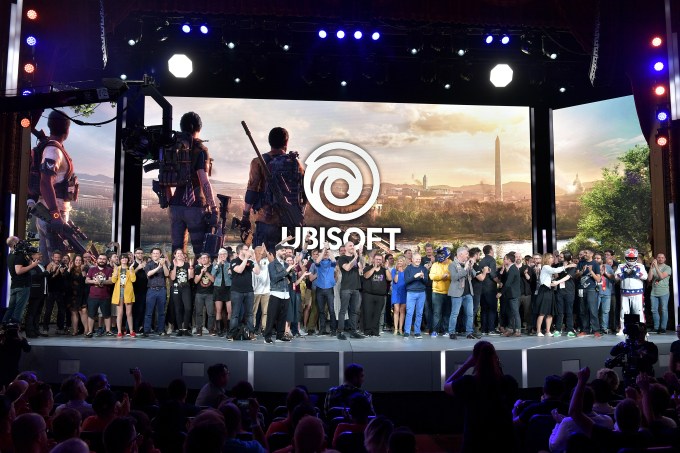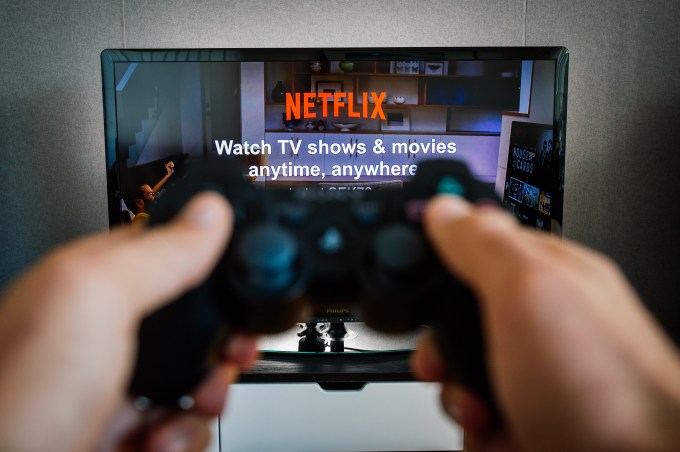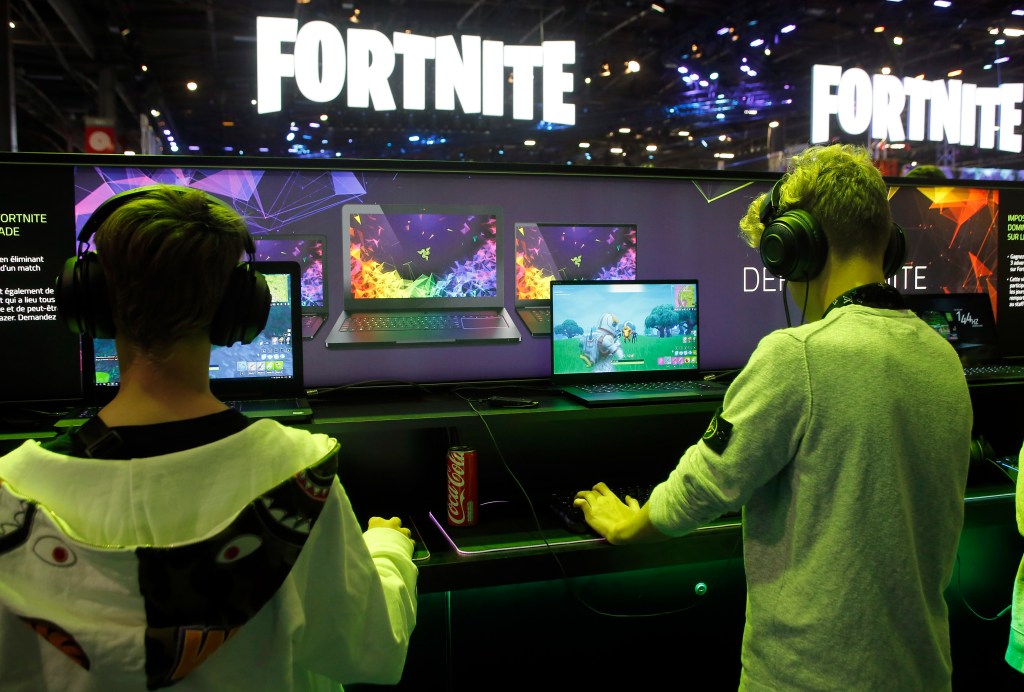For more than 15 years, Steam has been the dominant digital distribution platform for PC video games. While its success has spawned several competitors, including some online stores from game publishers, none have made a significant dent in its vice-like grip on the market.
Cracks, though, are seemingly starting to appear in Steam’s armor, and at least one notable challenger has stepped up, with potentially bigger ones on the horizon. They threaten to make Steam the digital equivalent of GameStop — a once unassailable retail giant whose future became questionable when it didn’t successfully change with the times.
The epic launch of an Epic Store

Epic Games has, in a remarkably short period of time, positioned itself as the successor to Steam. In December, the creator of the billion-dollar Fortnite franchise announced it was getting into the game retail business with the Epic Games store. Less than two months later, it had landed limited exclusivity deals with two publishers that chose to bypass Steam as they launch upcoming titles.
First up was Ubisoft, which announced the PC version of Tom Clancy’s The Division 2, a highly anticipated action game, would be semi-exclusive to the Epic Games store (it will also be available on Ubisoft’s digital storefront). Ubisoft also said that “additional select titles” would be coming to Epic’s store in later months.
“We’re giving game developers and publishers the store business model that we’ve always wanted as developers ourselves,” said Tim Sweeney, founder and CEO of Epic Games. “Ubisoft supports our model and trusts us to deliver a smooth journey for players, from pre-purchase to the game’s release.”
Three weeks later, publisher Deep Silver abruptly discontinued pre-sales of its survival shooter Metro Exodus on Steam and announced the game would be available moving forward solely through the Epic Games store (previous Steam orders will be honored).
Steam’s past success is hitting new blocks
To be clear, Steam is hardly struggling. Last October at Melbourne Games Week, Steam announced it had 90 million monthly active users, compared to 67 million in 2017. Daily active users, it said, had grown from 33 million to 47 million.
Much of that growth came from China, where players are looking to circumvent the government’s crackdown on games. Domestic numbers, though, have been trending down, according to SteamSpy, a third-party tracking service.
Valve Software, which owns Steam, did not reply to requests for comment on this story. It did, however, post a statement on the Metro Exodus Steam page soon after Deep Silver announced its partnership with Epic, saying, “We think the decision to remove the game is unfair to Steam customers, especially after a long pre-sale period. We apologize to Steam customers that were expecting it to be available for sale through the February 15th release date, but we were only recently informed of the decision and given limited time to let everyone know.”
So what’s the draw for game makers to sell via the Epic Games store? It is, of course, a combination of factors, but chief among those is financial. To convince publishers and developers to utilize their system, Epic only takes a 12 percent cut of game-sale revenues. That’s significantly lower than the 30 percent taken by Valve on Steam (or the amounts taken by Apple or Google in their app stores).
To woo developers who use its Unreal graphics engine, Epic also waives all royalty fees for sales generated through the store. (Developers who use Unreal in their games typically pay a 5 percent royalty on all sales.)
The reason for those notably lower commissions, perhaps not surprisingly, ties back to Fortnite.
“While running Fortnite we learned a lot about the cost of running a digital store on PC,” says Sweeney. “The math is simple: we pay around 2.5 percent for payment processing for major payment methods, less than 1.5 percent for CDN [content delivery network] costs (assuming all games are updated as often as Fortnite), and between 1 percent and 2 percent for variable operating and customer support costs. Because we operate Fortnite on the Epic Games launcher on such a large scale, it has enabled us to build the store, run it at a low cost and pass those savings onto developers.”
Owning the game customer

Higher commissions are just one of the issues developers and publishers have with Steam. While none were willing to go on the record, for fear of retribution from Valve or because they were not authorized to officially speak on their company’s behalf, the complaints generally echoed each other.
These days, a publisher’s relationship with the customer is seen as one of the most critical parts of the industry.
Some are upset that Steam owns the customer, rather than the publisher. That means it’s harder for the maker of a free-to-play game to monetize it. Similarly, publishers can’t learn their customers’ habits or desires without enticing them to volunteer information. Even basic product intelligence, like click-through tracking on advertisements, can’t be measured, as Valve doesn’t allow that data to be gathered.
“We’re moving, as a company, away from units sold and toward lifetime relationships,” says Andrew Wilson, CEO of Electronic Arts. “Once you start to think about the relationship on a lifetime basis … that really changes the nature of the business overall.”
A lack of clarity into customer habits makes it something of a crapshoot in determining how to market and position games. One workaround would seemingly be placement on Steam’s front page, but Valve doesn’t work together with publishers on this. Placement is done through algorithms and crowdsourcing, not income potential.
Valve could easily ameliorate many of these issues, lowering commission costs and working more closely with game makers on game placement on the store. The real roadblock to sweeping change on Steam, though, and one of the most common grievances from game makers, is the user base.
While the majority of users are typical gamers, others display a devotion to Valve and Steam that is almost cult-like. A Reddit page devoted to Steam has more than 580,000 subscribers, with many recent posts venting frustration with the competitive challenges the Epic Games store has presented. And there are 15 related subreddits.
In cultivating that fanatical portion of its user base, Steam has, in some ways, weaponized it. The Steam forums are filled with toxic conversations, and bad actors have found a way to affect the company’s algorithms. Deep Silver learned this firsthand after announcing its deal with Epic and Steam’s message on the Metro Exodus game page.
In the one day between Deep Silver’s announcement and the cessation of sales on Steam, the platform’s loyalists rushed to buy a copy on Steam while they could, despite the fact that the game would be $10 cheaper at the Epic Games store.
Then, however, they began to “review bomb” the publisher’s earlier titles, Metro 2033 Redux and Metro: Last Light. Between January 28 and 30, the two five-year-old games received more than 1,700 negative reviews. That could potentially affect future sales and Deep Silver’s catalog income.
In comparison, game reviews, at present, aren’t offered on the Epic Games store. They’re coming, but Sweeney says they’ll be an opt-in feature for developers “to mitigate toxicity resulting from reviews being the only native communication mechanism.”
Finally, there’s the matter of Steam’s customer support. Publishers say it’s hard to get a timely answer about anything, and some customers complain about a variety of issues, ranging from obtaining refunds to the quality of many games on the platform. Sweeney says to circumvent that, the global player support team for Fortnite will also oversee support for the Epic Games store.
Fortnite has, at last reported count, 200 million players. Less than a quarter of those are using Steam to launch the game (and more than half don’t even have Steam installed). That presents an opportunity to build an audience that’s loyal to Epic’s store. To do that, the company is enlisting the support of streamers, arguably the best promotion method for publishers in the gaming industry today. Through its Support-A-Creator mode, streamers can earn money when their fans buy the game (the amounts earned will vary by game).
“Previously, most creators were not compensated by game developers for their work and instead had to rely on donations,” says Sweeney. “By matchmaking creators with developers, the Epic Games store makes it easier for players to discover games, and rewards content creators for their efforts.”
Steam needs to hold on to its market share as game streaming takes off

Ultimately, though, it might not be Epic Games that Steam has to worry about. As digital download hubs slug it out for customers now, other companies are working on Netflix-like game streaming and subscription services that threaten to revolutionize how people play games in the near future.
The technology is already being tested. Sony’s PlayStation Now gives players instant access to a library of 650 games (mostly older, catalog titles) for $99 per year. Google began testing a service called Project Stream last year, streaming Ubisoft’s Assassin’s Creed: Odyssey to overwhelmingly positive reviews. Microsoft plans to roll out its own streaming service, called Project xCloud, later in 2019, which will let players instantly play Xbox One games on computers, phones and tablets. Verizon (and TechCrunch parent company) has its own tests underway in conjunction with Nvidia. Apple and Amazon are expected to announce similar services in the coming months. And even Electronic Arts is pouring money into development of its own service, showing off a prototype at E3 last year.
The concept works in much the same way as streaming movies or music: Games live on a cloud server and players access them from pretty much any device with a screen. Within seconds of selecting a title, they’re in the game. (Load screens are basically a thing of the past.) And if they stop playing on one device, then pick up another, they’ll resume the game at exactly the same place they hit pause.
Lag has been an issue in past attempts to make this happen, but faster (and more widespread) broadband and the upcoming spread of 5G cellular technology have advocates and executives convinced the time is finally right. Ubisoft CEO Yves Guillemot, for instance, says he expects streaming to become a significant part of his company’s earnings in the near future.
“With 5G, with the evolution in technology, I see that coming step by step,” he says. “In five years, it’s really going to be something. It’s going to be big in our P&L … We will see many [companies] coming and trying to do a Netflix-like option. But I believe there will be lots of services with lots of different types of games. Things are changing so often that it will be hard to have everything.”
EA’s Wilson, meanwhile, sees streaming as a way to significantly widen the universe of gamers, as it removes many of the obstacles that exist in a Steam or Epic Games-like store. There’s no download time when you decide to play a new title. Players don’t have to worry about upgrading their hardware regularly. And game and driver updates will become a thing of the past.
“I think this will be a big change to the AAA component of gaming and entertainment — the games you’ve typically played on a 60 or 70 or 80-inch television,” says Wilson. “I think what we’re trying to do with streaming and subscription is really take the fluidity and the access and the limited friction in engagement you get in a mobile device today and apply to that to every device you own with unprecedented AAA content.”
Widespread acceptance of game streaming, if it happens, is still down the road, though. Today, there is still an entire generation of gamers who have grown up with Steam or who graduated from consoles to it and can’t imagine any other way of getting games.
But a new generation of player is becoming increasingly powerful in the video game industry — call it the Fortnite generation — and that’s where the more immediate threats lie for Valve Software’s crown jewel.
As support from some major publishers begins to flag and an often toxic user base threatens to scare away new users, the service that revolutionized the video game industry when it was launched in 2003 is looking increasingly vulnerable.































Comment